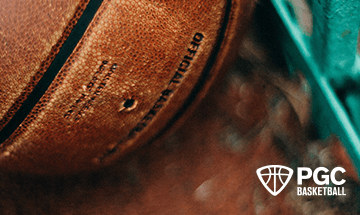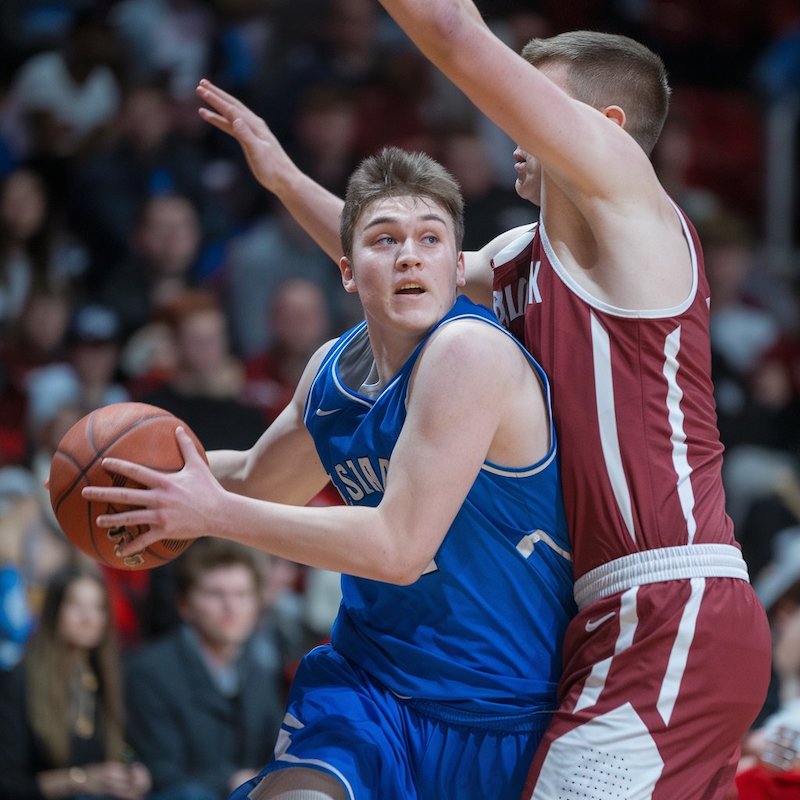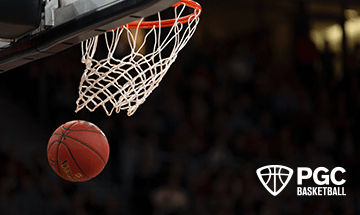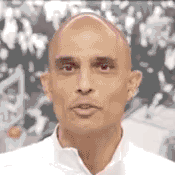It’s My Fault
It’s My Fault
All sorts of things always go wrong. Big deal. We know that. That’s the given in the athletic algebra.
The only unknown is you.
It is apparently human nature to blame someone or something for failures and inadequacies. Typically, almost everyone blames the president or the governor or the mayor or the principal or the boss or the teacher…for whatever may have gone wrong.
Athletes and fans, for the most part, do little to lift themselves beyond this phenomenon of “scapegoatism.” It’s always someone else’s fault, never yours.
In all fairness, however, since sports are so performance and result-oriented and outcomes so definitive, coaches have probably done better than most others to reverse this tendency.
Read More: Welcome Petty Problems
Athletes are constantly being told not to blame others. They still do it, of course, but at least there is a lot of talk about the importance of not doing it.
Most every athlete has heard, many times, the idea that the player who messes up during the final play is NOT the player who lost the game. The game, we know, is won or lost throughout its duration, not just in the final seconds. This concept is so well known I hadn’t planned to discuss it at all. There seems no reason to emphasize what has been said so often.
But if you seek excellence in athletics it is not merely necessary to avoid saying that someone is to blame for a failure or defeat, it is necessary to avoid thinking that someone is to blame.
I hope you grasp the immense difference in these two concepts. Many athletes congratulate themselves for not blaming a teammate in the course of actually blaming him. “I know one play doesn’t lose a game, but that last fumble really hurt us.” Flimsy disguise there. It fools no one. Better, but still not adequate: “No one is to blame, we all had a part in it.” (Thinking “That last fumble really hurt us.”)
The avoidance of blame-placing is a start. But it’s not enough. If you really want to be an athlete, a champion, work on your thinking. It really was your fault.
- What could you have done differently?
- Could you have shown more leadership before the game or been more encouraging in practice, thereby avoiding the critical point?
- How could you have helped your teammate hold onto the ball?
- Did you remind him, intelligently, not to fumble? (Note: If you simply told him to grip the ball with both hands, you may have actually contributed to making him more careful and less aggressive. Wouldn’t it have helped him be tougher and to feel more aggressive if you had reminded him of how tough he is and of how much you’d hate to be the other team trying to get the ball from him?)
I am not claiming I know the best way to stop fumbles or to eliminate all other potential errors. But I am claiming that, if we are seeking excellence, we must search constantly for ways to improve, for ways to encourage, for ways to do whatever can be done to help teammates reach their potential and help the team win. When we stop searching and start to blame, or spend time thinking of blaming, we have lost another opportunity.
Read More: Quit Being So Hard to Coach
Ask yourself if you have reached the point in your athletic development where you can lead your team in scoring and play the best defense and still walk off a field having lost, feeling sincerely that the loss was your fault. I am not talking about humbly claiming it was your fault or saying it was your fault in hopes that others will contradict your contention. I am talking about truly feeling it was your fault, because your focus is fully on what you must do. Meeting this demand isn’t all that noble, selfless or wonderful for you. It is mere intelligence.
Teammates will make mistakes. No use being shocked by that. No use pointing it out. No use thinking about it. Reserves, starters, stars, and champions will all make mistakes. So will referees, umpires, and coaches. Playing conditions may not be right. All sorts of things always go wrong. Big deal. We know that. That’s the given in the athletic algebra. The only unknown is you. What are you going to do? What could you have done better? Personally, with regard to your teammates, with regard to everything going on, how can you have the most positive impact possible?
Any other focus is a waste of time. When you get to the point in your athletic career when you can walk off a field having been the big star but having emerged a loser, yet have your focus entirely on what you could have done better and how you can do better next time, you have arrived. You are an athlete. You think like a champion.
—Excerpted from the book, “Think Like a Champion”
Related Articles
#1 Thing College Basketball Coaches Hate in a Recruit
A short while back on a PGC mentorship Zoom call, a player asked Yale Women’s Assistant Coach, Amber Raisner, “what’s the #1 thing you look for when deciding who NOT to recruit for your team?” Click to get the answer
5 Habits That Can Make Undersized Point Guards Unstoppable
When it comes to basketball, size isn’t everything. For undersized point guards, mastering specific skills and habits can not only level the playing field but also make them truly unstoppable.
How To Win The Inner-Game of Basketball (and Life)
As a basketball player, just like so many other walks of life, players do not operate at max capacity because they are extremely hard on themselves and are losing the ‘inner game.’
About PGC
PGC Basketball provides intense, no-nonsense basketball training for players and coaches. Our basketball camps are designed to teach players of all positions to play smart basketball, be coaches on the court, and be leaders in practices, games and in everyday life.
We combine our unique PGC culture with a variety of teaching methods and learning environments to maximize the learning potential of those that attend our sessions. In addition to spending 6-7 hours on the court each day, lessons will be reinforced through classroom sessions and video analysis.
Our goal at PGC is to empower you with the tools to fulfill your basketball dreams, while also assisting you in experiencing the joy of the journey.
To learn more about PGC Basketball, including additional basketball training tips and videos, visit our YouTube Channel or find us on Facebook, Instagram, and Twitter.













Share This Post